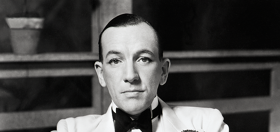 As the holidays and all of the overeating, drinking and socialize associated with them comes to an end, New Year closes in and people inevitably start thinking about resolutions. For many of us, those resolutions involve some form of fitness, exercise or diet and usually begin with an eager enthusiasm only to fizzle out before any real changes or habits have begun. For those who are interested in learning the tools to successfully set and accomplish fitness goals, hiring a trainer may be the answer to keep you on track in 2016. So how do you go about finding the right personal trainer for you and your needs? I’ve been in the business almost 15 years and can spot the difference between a bad trainer, a good trainer, and a great trainer in a matter of moments. Unfortunately, the average gym-goer or someone completely new to that environment may have a harder time making an educated decision when choosing a fitness professional. This article is designed to give you some resources that lessens some of the confusion and get you into the hands of a qualified personal trainer.
As the holidays and all of the overeating, drinking and socialize associated with them comes to an end, New Year closes in and people inevitably start thinking about resolutions. For many of us, those resolutions involve some form of fitness, exercise or diet and usually begin with an eager enthusiasm only to fizzle out before any real changes or habits have begun. For those who are interested in learning the tools to successfully set and accomplish fitness goals, hiring a trainer may be the answer to keep you on track in 2016. So how do you go about finding the right personal trainer for you and your needs? I’ve been in the business almost 15 years and can spot the difference between a bad trainer, a good trainer, and a great trainer in a matter of moments. Unfortunately, the average gym-goer or someone completely new to that environment may have a harder time making an educated decision when choosing a fitness professional. This article is designed to give you some resources that lessens some of the confusion and get you into the hands of a qualified personal trainer.
The first thing I tell people to do when scouting out a trainer is “look”. Be observant. If you are already going to a gym take a look at the trainers on the gym floor. If you’re considering joining a gym, ask to see some of the trainers on your gym tour. Does the trainer look like a trainer? This can often be misconstrued as superficial and judgmental but it is not meant to be. Trainers are people too, and many of us have fluctuations in our weight, muscle mass and athleticism based on many factors including sports seasons, goals, injuries and stress. I am the first person to admit that my body changes drastically depending on whether I’m preparing for a bodybuilding show, getting ready for summer, or just maintaining a healthy lifestyle and finding a healthy balance. A trainer doesn’t have to be massive, ripped, and shredded year round. However, they should exhibit a certain level of base fitness that inspires people. Body types aside, does the trainer look professional while training clients? Does the trainer have on proper gym clothes that are neat and clean? Do they look engaged with their clients while training or is their attention focused on TVs, cellphones, other members, or anything besides what their client is doing? Is the trainer actively providing their client with cues on form, and making corrections as needed? A bad trainer will lack focus and engagement with a client. A good trainer will watch a client and provide encouragement. A great trainer will provide proper cues that are clearly and precisely understood by the client and the trainer will be able to progress or regress an exercise immediately based on the client’s form, execution, and safety, all while making a client feel encouraged and empowered. As a final note, if you see a personal trainer on their phone while training, sitting on a bench or ball while a client does an exercise or generally looking bored and uninterested it should be an immediate red flag. All of these are considered extremely unprofessional, rude and spotlight a personal trainers lack of respect for their client’s time, money and safety.
 As you venture around the gym and observe trainers in action with their clients, listen. Is the trainer discussing things that are important to the quality of the session? Is the trainer talking more about their social life than focusing on the client? Is the trainer keeping the client focused on the workout instead of just conversation? Keep in mind that as a relationship with a trainer carries on, a rapport and relationship starts to develop and clients naturally open up a lot about themselves and friendships can develop out of training. This is absolutely normal and should be accounted for. A bad trainer will dominate a training session talking about themselves and not focusing on a client’s program or safety. A good trainer will engage with a client, listen, and actively participate in conversation. A great trainer will maintain focus, provide cues and correct form, keep the focus on the workout and actively engage in conversation with a client when appropriate.
As you venture around the gym and observe trainers in action with their clients, listen. Is the trainer discussing things that are important to the quality of the session? Is the trainer talking more about their social life than focusing on the client? Is the trainer keeping the client focused on the workout instead of just conversation? Keep in mind that as a relationship with a trainer carries on, a rapport and relationship starts to develop and clients naturally open up a lot about themselves and friendships can develop out of training. This is absolutely normal and should be accounted for. A bad trainer will dominate a training session talking about themselves and not focusing on a client’s program or safety. A good trainer will engage with a client, listen, and actively participate in conversation. A great trainer will maintain focus, provide cues and correct form, keep the focus on the workout and actively engage in conversation with a client when appropriate.
After you have found a trainer that exhibits the physical, professional, and quality standards by observing and listening the next, and most important step is to research the trainer’s education and knowledge base. The fitness industry currently has no standardized and formal certification requirements regulated by the state. Unlike masseurs and cosmetologists who require state licensing and regulation, anyone can legally call themselves a personal trainer with little to no liability. If you’re training at a gym with trainers that are hired by the company, you can pretty much be assured that they have gone through some form of certification process. However, if you are looking at independent trainers, you will want to ask what certifications they hold and if they are current. Does the personal trainer hold a degree in a health and fitness related field? This is not always the only indicator of a great trainer, and in fact many who hold degrees in anatomy, physiology, or sports medicine usually go on to provide more specialized services like sports rehab or physical therapy. Many trainers discover their passion for personal training after college and may have an unrelated degree or no degree at all and this is absolutely acceptable. Does your trainer hold a current certification from an agency respected and held accountable by industry standards? Several of the most highly recognized in the industry that usually guarantee a trainer has had proper training and testing are: NASM, ACSM, NSCA, PTAGlobal and ACE. All of these agencies require rigorous coursework, continuing education to maintain current certification, CPR/AED certification, and a testing procedure that requires a passing score. Outside of their regular Certified Personal Training certifications, these agencies also offer more rigorous, specialized certifications that pertain to specific areas of fitness including, sports performance, kettlebells, corrective exercise, nutrition, pre/post natal, children and aging adult populations. A bad trainer will have no certification or one that has expired. A good trainer will have a current CPR and personal training certification. A great trainer will have a current certification, one or more specializations catering to specific demographics that they enjoy working with, and will be continually exploring new areas of fitness through education, personal enhancement and career development.
How about we take this to the next level?
Our newsletter is like a refreshing cocktail (or mocktail) of LGBTQ+ entertainment and pop culture, served up with a side of eye-candy.
 Once you have found a trainer, it is absolutely normal and acceptable to sit down with them, free of charge, to ask them any questions you may have about their style of training, previous history pertaining to your goals, and references from past clients. Almost any trainer with a history of working with clients will have references on hand or available to view on their website. Any trainer should also be able to provide you visual proof of current certifications and specializations they have obtained. If a trainer feels that your needs are outside of their specific scope of or comfort level, they should be able to refer you to someone with more experience for your specific needs. When meeting with your trainer, be mindful of their body language and communication skills. Do they make you feel comfortable? Do they explain things in terms you understand? Do they listen to your questions and answer them appropriately? Are they on time? Do they give you ample time to make sure you feel like you have all your questions answered or do they make you feel rushed or inconvenienced during the meeting? All of these are helpful clues to a trainer’s work ethic and future performance once you have made the choice to begin training.
Once you have found a trainer, it is absolutely normal and acceptable to sit down with them, free of charge, to ask them any questions you may have about their style of training, previous history pertaining to your goals, and references from past clients. Almost any trainer with a history of working with clients will have references on hand or available to view on their website. Any trainer should also be able to provide you visual proof of current certifications and specializations they have obtained. If a trainer feels that your needs are outside of their specific scope of or comfort level, they should be able to refer you to someone with more experience for your specific needs. When meeting with your trainer, be mindful of their body language and communication skills. Do they make you feel comfortable? Do they explain things in terms you understand? Do they listen to your questions and answer them appropriately? Are they on time? Do they give you ample time to make sure you feel like you have all your questions answered or do they make you feel rushed or inconvenienced during the meeting? All of these are helpful clues to a trainer’s work ethic and future performance once you have made the choice to begin training.
Lastly, if you are working with a trainer outside of a gym, make sure to ask them if they hold personal liability insurance in case of an accident or injury. Most gyms’ insurance covers their trainers while training at a club. However, independent trainers must take it upon themselves to have such insurance and any reputable trainer will have this type of insurance and that is always maintained. A bad trainer will leave you feeling confused, intimidated, uneasy, or unmotivated about their qualifications and ability to help you with your goals. A good trainer will answer any questions you may have about personal training and provide you with the information you need to make a decision. A great trainer will actively listen to you, provide you with the information you need, offer a plan of action for your goals, be open and honest and provide documentation showing their current certifications, liability insurance, client references and any relevant specializations, and will make you feel comfortable, inspired, and motivated about the new fitness journey you are about to embark on.
So as you can see, choosing a trainer can be a bit more involved that just looking at pictures of trainers on the wall at the gym. Taking the time to carefully choose the trainer that is right for you can make the difference in having a disappointing experience that leads to you not reaching your goals, or an amazing experience where you develop a solid relationship with a trainer that you trust, feel comfortable with and who can help you continually reach your goals year after year.
For more information or to book a class, visit www.phoenixeffectla.com.
The Phoenix Effect, a functional group fitness studio that gets you in shape fast, is offered exclusively at 7264 Melrose Ave., Los Angeles, CA.





















QJ201
“Thanks for joining XYZ Gym, what kinda of training schedule do you need”
“Mornings, okay, we have Jane or Steve available on … ”
That’s how it works for most of us.
Blackceo
I do not like the gym environment at all. Haven’t gone regularly since college. I have a set up in my house and do a lot of cardio stuff not requiring a gym membership. I met my personal trainer through a friend of mine. He is retired and used to train the fire fighters in my area. I used to be pretty routine with my workout, which had me hit a plateau. Every session with my trainer is something different, which they say you need for muscle confusion. Its very personal and to my liking. He knows that I want to stay very lean and not have large muscle mass. I love cardio but I hate weights so I need a personal trainer for the muscle building and muscle maintenance stuff. I basically use him from January to the end of September and then I indulge a bit during the holiday season. I usually gain about 5-10 lbs and then get back to it in the New Year.